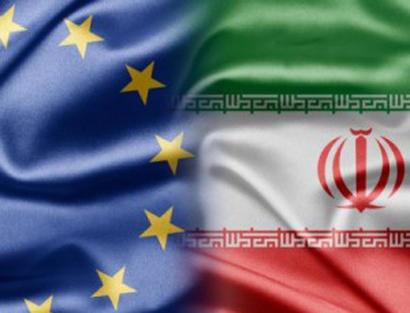(MENAFN- Trend News Agency) BAKU, Azerbaijan, September 18. The arms trade
embargo from the European side is irrelevant to Iran, which has its
own domestic production of most weapons and military supplies, said
Vahid Jalalzadeh, Head of the National Security and Foreign Policy
Committee of the Iranian Parliament, Trend reports.
According to Jalalzadeh, the arms trade embargo against Iran,
which has been applied for a long time, has resulted in Iran
strengthening its armed defense field.
He also said that according to the Joint Comprehensive Plan of
Action (JCPOA), Iran was supposed to be free from the arms trade
embargo in 2020. However, the European parties to the deal added a
new condition in 2020 that extended the embargo for another three
years. This meant that Iran could not buy or sell weapons until
October 18, 2023. But now, the European parties have announced that
they will not lift the embargo, claiming that Iran has not complied
with its obligations under the JCPOA.
Recently, the EU's High Representative for Foreign Policy and
Security, Joseph Borell, said that Iran had not fulfilled its
obligations under the JCPOA. Because of this, three European
countries (the UK, France and Germany) chose to withdraw from some
of their commitments in the deal.
On January 2016, Iran's nuclear program triggered the creation
of JCPOA between Iran and the P5+1 group (the US, Russia, China,
the UK, France, and Germany). In May 2018, the US announced its
withdrawal from the deal and imposed sanctions on Iran in November
of the same year. To preserve the agreements reached as part of the
JCPOA, the European signatories of the deal started in January 2019
and a financial mechanism for maintaining trade with Iran called
INSTEX was formed.
On May 8, 2019, Iran announced ceasing to fulfill its
commitments regarding the sale of over 300 kilograms of uranium, as
stated in the deal, basing its decision on the other signatories
that have not fulfilled their obligations.
On July 7, Iran announced that it will not be fulfilling its
commitments regarding the enrichment of uranium at 3.67 percent and
the reconstruction of the Arak Heavy Water Reactor Facility as
stated in the deal.
On September 5 of the same year, Iran announced its commitment
to enrich uranium, using next-generation centrifuges and not to mix
it with the enriched uranium residues as part of the third step of
reducing commitments in JCPOA.
On November 5, 2019, Iran announced to have taking the fourth
step in connection with reducing its commitments to the nuclear
agreement. So, uranium gas is being pumped to the centrifuges at
the Fordow Fuel Enrichment Plant.
On Jan.2020, Iran took the last fifth step in reducing the
number of its commitments within JCPOA.
Comprehensive Plan of Action (JCPOA) between Iran and the 5+1
group (Russia, China, the UK, France, the US, and Germany), and
imposed new sanctions against Iran as of November 2018.
Over the past period, the sanctions affected Iranian oil
exports, more than 700 banks, companies, and individuals. The
sanctions have resulted in the freezing of Iranian assets
abroad.
---
Follow the author on X (Twitter): @BaghishovElnur




















Comments
No comment